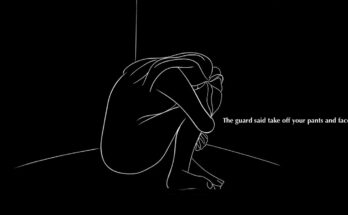 By Azadeh Akbari
By Azadeh Akbari
Source: Iran International

In yet another move in its war on women’s freedom of choice, Iranian authorities have introduced the Tuba Plan to promote and enforce the country’s mandatory hijab laws amid widespread defiance.
In a report on Sunday, the ‘reformist’ newspaper Shargh revealed it will be rolled out in three phases, culminating in the training of 1,500 “missionaries” tasked with promoting “the culture of chastity and hijab” with a particular focus on schools and education centers.
Citing Mohammad Hosseinzadeh, director general of Culture and Islamic Guidance of Khorasan Razavi province, Shargh reported that the project is mainly aimed at teenagers and youth with 400 individuals registered to become its missionaries.
“Our goal is to promote an Iranian-Islamic culture, of which the hijab is one of its examples,” Hosseinzadeh said.
When asked about whether the individuals taking part in the course would also be involved in the Nour Plan , an initiative that began in April this year to enforce mandatory hijab laws, Hosseinzadeh said it had not been finalized.
“I don’t have any information about whether or not people will be allowed to participate in Nour Plan or Headquarters for Enjoining the Good and Forbidding the Evil after completing this course, but our field of activity is advertisement and promotion,” he said.
However, Shargh highlighted that the Tuba Plan’s ultimate goal seems to be staffing the hijab division within the Headquarters for Enjoining the Good and Forbidding the Evil, a government institution that shapes and enforces Iran’s morality laws.
Led by Seyyed Mohammed Saleh Hashemi Golpayegani, the institute also referred to as the Headquarters for the Promotion of Virtue and Prevention of Vice was sanctioned in January 2023 by the European Union for being “responsible for serious human rights violations in Iran.”
Last week, Naimeh Islamlou, director of Kheybar Institute announced the commencement of registration for the Touba National Project in Karaj, near the country’s capital in Tehran.
She stated that the free “hijab and chastity promotion” training course will run for 60 hours, training people at three levels and awarding them a “reputable” degree upon completion.
Shargh noted that according to Kheybar Institute’s website, their main role appears to be in staffing and implementation of chastity and hijab projects for Headquarters for Enjoining the Good and Forbidding the Evil.
A unit within Kheybar Institute which they refer to as the ‘Fatemi Mujahedan’ appears to be aligned with the Tuba Plan, as pointed out by Shargh.

According to the institute’s website, the unit runs training courses for hijab promoters at three levels, with 124 courses conducted so far, involving participants from all over the country.
To train, individuals must visit the “Chastity Virtual Specialized University.” The so-called university is described as “a training barracks and an ammunition depot for cultural officers of the frontline of chastity and hijab.”
One of the registration officials in these courses told Shargh: “We have been holding training programs in the field of chastity and hijab at three levels for nearly 20 years. We took Plan Tuba to the Ministry of Culture and Guidance and got their support so that applicants who want to participate in these courses can have a free training course without spending money.”
The registrar, whose name was not mentioned in the Shargh report, said there is no guarantees of employment for those enrolling, “but if they reach level three, they can work in schools, and if they earn, they will be paid with a gift or a gift card.”

Ehsan Ahangar, director general of the Ministry of Guidance in Mazandaran Province, announced on July 28 that the Tuba Plan will indeed be focusing on public spaces and schools.
“After completing the course and receiving their certificate, participants will be deployed to promote hijab and chastity, particularly in neighborhoods and schools, which are our main target communities,” Ahangar said.
For over four decades, the Islamic Republic has tried to impose mandatory hijab laws on Iranian women through various projects and its crackdown on women who defy its stifling rules continues.
Following the nationwide Woman, Life, Freedom uprising sparked by the death of Mahsa Amini in morality police custody in September 2022 for an alleged hijab violation, women’s protests against the Islamic Republic’s oppressive laws have become one of the most significant challenges facing the authorities.
Despite the government’s violent suppression, which saw hundreds killed by state security amid the 2022 protests, many Iranian women have continued to defy and resist the Islamic Republic’s hijab laws, appearing unveiled in public places over the past two years.
These acts of civil disobedience however come at a heavy price. Women risk severe penalties and even their lives in the fight for freedom and equality as the battle against what the UN termed “gender apartheid” continues.
Unveiled women have been banned from public spaces, education, workplaces, and even jailed amid the government’s fight in the face of nationwide hijab rejection.




